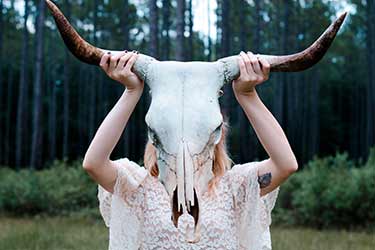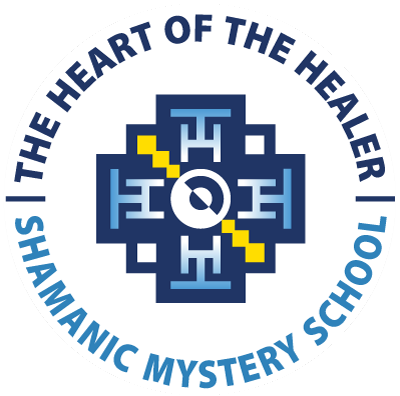In traditional shamanic cultures, shamans were selected in specific ways, often through a near-death experience, such as an illness, lightning strike or animal attack. They were chosen by Spirit and called into service. Sometimes they went willingly, sometimes grudgingly. Nonetheless, the path to becoming a shaman was distinct and narrow.
In the Pachakuti Mesa Tradition as well as other modern variations of shamanic traditions, it is recognized that “the calling” to a shamanic path can occur through a wide variety of means and is no longer limited to those born into indigenous shamanic cultures. The initiations are often symbolic and not as literal as the old ways. Personal trauma, identity or family crisis, UFO encounters, and spontaneous visions can also act as the awakening catalyst.
Whatever initially calls one forward, willingly aligning with that calling means you are engaging in a process of “self-selection.” Though a controversial topic, self-selection is becoming more widely accepted as a legitimate way to enter into a shamanic relationship with the world. These types of relationships are often termed non-traditional apprenticeships, relying on both a shamanic teacher, but also on a person’s own inner authority and direct experience.
This is quite a departure from the traditional ways. Yet it speaks to the evolution of human consciousness. Throughout history there have been overwhelming factions hostile to shamanic, Earth-based, or goddess-honoring practices. It was crucial that the priests, priestesses, shamans, and other spiritual elders took those teachings into hiding to preserve them for a time when humanity would be ready for them again. No matter how or why these traditions and practices have been sequestered, I believe it is time for the ancient teachings, mystery schools and sacred texts to be made available – to everyone. What was once esoteric and reserved for a select few to safeguard is now desperately needed and fervently sought. Humanity is raising in consciousness. Shamanism isn’t just for shamans anymore.
And yet, as a white girl from Illinois, I recognize there are indigenous peoples who would call me a fraud. Who would think it blasphemous for me to even consider myself in the same league as them. In embracing a shamanic tradition or practice, I fully acknowledge that there is much I will never know because I didn’t grow up in a culture with shamanic traditions. There are experiences and skills I will never have as I didn’t apprentice with a shaman for 20 or 30 years. There are nuances to these cultures and their practices that I would never presume to claim. But it doesn’t mean I’m illegitimate.
In the broadest sense, I believe we are all shamanic beings. We can all achieve shamanic consciousness. We all have access to this universal wisdom and intelligence. We all have the ability to develop shamanic skills. If I choose to practice the shamanic arts, walk in shamanic consciousness, or pursue a specific tradition, I have the right to make that choice as does every other person on this planet. It illustrates a concept that is a pillar of my personal values as well as my sacred work in the world: that each person has their own inner spiritual authority.
What do I mean by this term? Let me give you a real-life example.
One of the major themes in my life has been learning to trust myself – to validate and believe in my right to exist. To acknowledge that I am the authority on myself, including my relationship with Creator. It means that I choose not to let an outside authority decide what is best – or possible – for me, nor to usurp my sovereignty.
For several years before I became ordained, I knew I wanted to be a minister. But I had an internal conflict that needed settling first. How could I possibly be legitimate if all I did was send money to an organization, fill out a couple forms and receive a certificate? How could I defend myself if someone confronted me and said I wasn’t a “real” minister? It took me several years of inner searching before I could confidently answer those difficult questions.
My final conclusion went something like this: if a Bachelor’s degree requires 120 credit hours, then I have earned multiple Doctoral degrees in the experience of life from the years spent living 24/7 in the spiritual crucible. I wasn’t learning a specific religion’s doctrine or dogma. I was gaining direct experience in my relationship with Creator. My personal spirituality didn’t come from a thousand-year-old tradition, wasn’t passed down by my family, wasn’t derived from a book, nor regurgitated from what someone told me about God. No, I realized – and began to own – that I was my own channel; I was my own mediator. I could trust my own inner spiritual authority and no one was a higher authority on my relationship with Creator than me.
Self-selection into shamanism is a personal choice, made at the soul level, and embraced with a measure of consciousness and humility. It doesn’t imply one just claims the title of shaman. Will some people do it, though? Sure. I must acknowledge that possibility as an inherent risk in an age where we have the freedom to choose the shamanic path. That freedom means we will have to trust our judgment and powers of discernment to determine if the “shaman” we want to work with feels authentic, resonates with our values, has our best interest at heart, and can serve our needs. Which then opens up an entire Pandora’s box of, “How exactly do you define what a shaman is?” Someone I seek healing from or to apprenticeship with might completely embody what a shaman is to me but might come off as a quack to you.
These are the risks of expanding and modernizing the reach – and definition – of shamanism. Traditions organically shift over time. Cultures blend and adapt to new influences. Language and definitions change. Consciousness evolves. The Pachakuti Mesa Tradition teaches us that our mesa is a reflection of us. It is we who give the items their power and significance while at the same time recognizing each item is a sovereign and sentient presence. Ultimately, we carry the medicine within us.
Through integrating these two perspectives – the traditional and the modern – I arrive at an acceptance of “both/and” instead of forcing myself into “either/or”. I can appreciate the ancestral, indigenous, centuries-old traditions as well as the magic that occurs from repetition and devoted practice. I have the greatest respect for the cultures and lineages that have kept shamanic teachings pure, sacred and safe through the centuries. I know in past lives I was a part of those traditions. And, I can embrace the more philosophical, consciousness-based practices which recognize that intention and state of being are “more important” than a collection of physical objects, no matter how sacred they are. Every human has a shamanic soul and every being has access to the unseen realms, guidance from Spirit, and their own intuition. Every person has the right to claim for themselves the shamanic path.
About the Author
Rev. Dr. Stephanie Red Feather is a divine feminine change agent and champion of empaths. Stephanie is the author of the #1 book The Evolutionary Empath: A Practical Guide for Heart-Centered Consciousness and contributing author to the #1 book Chaos to Clarity: Sacred Stories of Transformational Change. As an ordained shamanic minister, Stephanie’s passion is to help fellow empaths embrace their soul’s calling to evolve humanity to the next stage of consciousness.
Stephanie has long worked in the realms of subtle energy. She holds both a master’s and doctorate in shamanic studies from Venus Rising University, which was established by one of her mentors, Linda Star Wolf. She is a Magdalene high priestess in the lineage of Nicole Christine, as well as a certified facilitator of the Priestess Process™. In addition, she holds certifications in a variety of energy healing and psycho-spiritual modalities including Reiki master, certified Shamanic Breathwork™ facilitator, and voice dialogue coach. Stephanie is a mesa carrier in the Pachakuti Mesa Tradition, having studied with don Oscar Miro-Quesada and his lineage since 2005.
Find out more about The Evolutionary Empath and order HERE.





